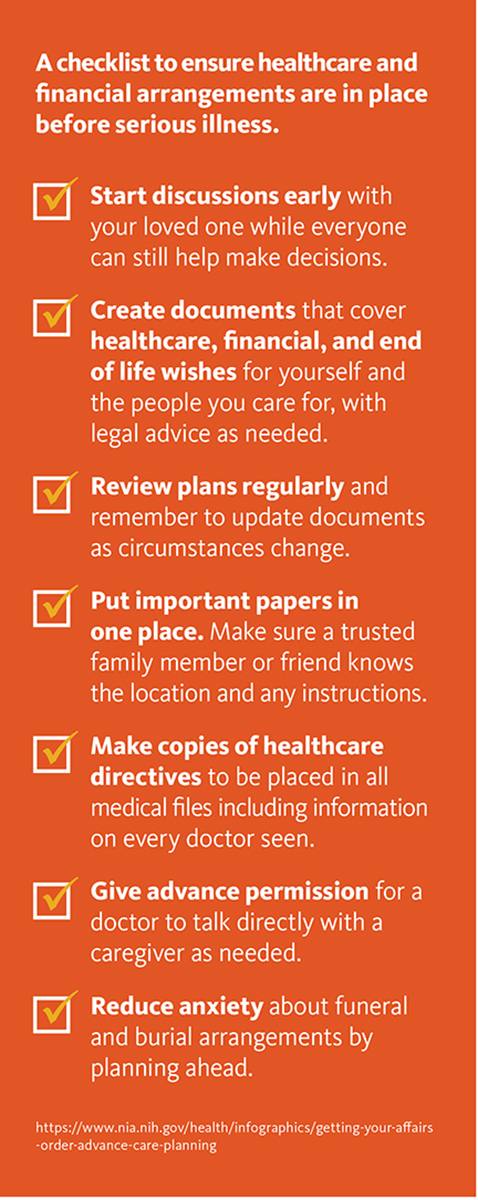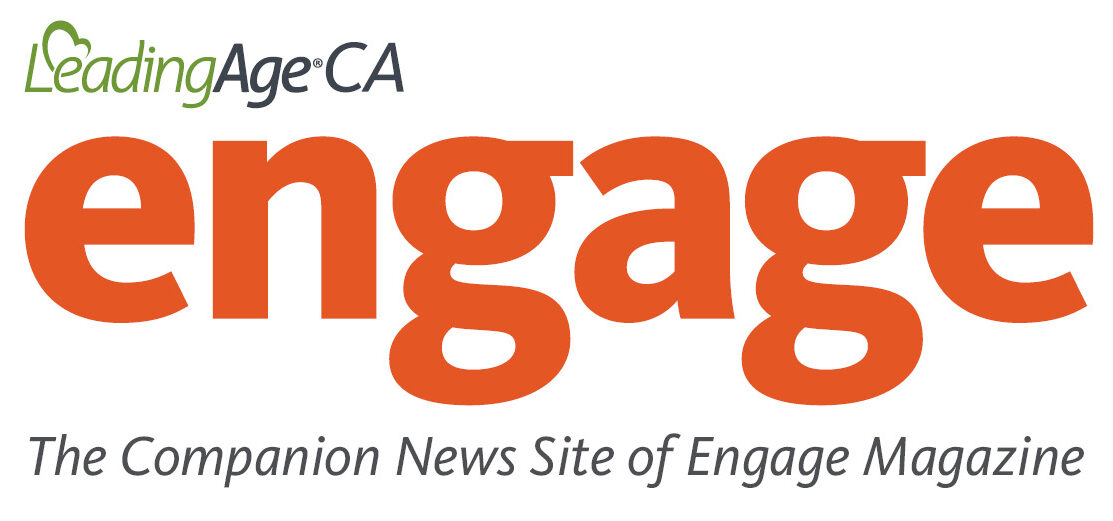by JUDY THOMAS, JD, CEO, COALITION FOR COMPASSIONATE CARE OF CALIFORNIA
As COVID-19 fills our emergency rooms and critical care units with patients, and precious resources are stretched to their limit, the relatively simple act of advance care planning can be a tremendous benefit to patients and providers alike.
When COVID-19 strikes, its victims can go from being seemingly healthy one minute to seriously ill or dying the next, leaving little or no time for the patient to communicate their personal values or say whether they want — or prefer to avoid — intensive care or treatments. Advance care planning assures that patients have a voice in the care they receive.
 Care providers can support consumers, their families, and the health care system as a whole by adding these items to their COVID-19 checklists:
Care providers can support consumers, their families, and the health care system as a whole by adding these items to their COVID-19 checklists:
• Engage seniors and medically fragile patients and their families in conversations about medical treatments during serious illness.
• Encourage patients or their surrogates to express their wishes and complete appropriate documents. Individuals who are relatively healthy should be encouraged to complete an advance directive. Individuals who are chronically or seriously ill should be encouraged to complete a POLST.
• If advance care planning documents are already in place, conduct a review to be sure that the information is still valid in light of COVID-19 and up-to-date.
CONVERSATION TIPS
Right now care planning conversations should focus on:
• Potential serious complications from COVID-19 and how age and/or health issues might be a risk factor
• How age and underlying health condition might impact success rate options like ventilator support
• The individual’s personal values, goals and wishes regarding medical care if they were to become seriously ill from COVID-19
• Whom the patient trusts to make medical decisions for them if they can’t speak
• The options for keeping the patient comfortable if they decide they do not want to be transported to the hospital or treated with a ventilator
ADVANCE DIRECTIVE VS. POLST
Once the conversation is had, completion of either an advance directive or POLST helps to ensure the patient’s wishes will be recognized and honored. Make sure to use the form(s) appropriate for the patient.
• An Advance Directive (also known as an Advance Health Care Directive) can be completed by anyone age 18 or over, and serves one or both of these functions:
• Durable Power of Attorney for Healthcare (to appoint a health care agent)
• Instructions for Healthcare (to indicate your wishes)
• POLST (Physician Orders for Life-Sustaining Treatment) is a medical order specifically designed for people who are elderly, seriously ill or medically frail. It is not appropriate for all patients.
OVERCOMING CHALLENGES
Social distancing under COVID-19 creates logistical challenges that must be overcome, such as having quality conversations using telephone or video calls, completing POLST and other ACP forms, and obtaining required signatures in a timely manner. CCCC is seeking guidance and/or waivers for some requirements. In the meanwhile, providers will have to be creative. Forms can be mailed back and forth, notary services may be obtained online, and when the need is urgent, verbal consent may be obtained for POLST forms.
TAKE ACTION NOW!
In the weeks and months ahead, hundreds of thousands of people will become seriously ill due to COVID-19. We will be unable to provide person-centered care if we don’t know what patients want. It is important to take action now.
COMMUNITY OUTREACH: Health systems, insurers and community service providers should reach out to seniors and those at risk of serious illness to provide encouragement and support for completing advance care planning documents.
ASSISTED LIVING COMMUNITIES: Make information on advance care planning and COVID-19 available to residents and encourage residents to talk with their doctor about care plans.
SKILLED NURSING FACILITIES: Engage all patients or their decision makers in care planning for COVID-19, focusing initially on patients at highest risk. Existing advance care planning documents should be reviewed. A care plan that includes do-not-transfer orders, and orders for medication to promote palliation and supportive care should be in place for those residents who do not want to be transferred to acute care.
RESOURCES AND LINKS
There are conversation starters, scripts, decision aids and other tools and resources to support advance care planning conversations amid COVID-19, including:
Coalition for Compassionate Care’s COVID-19 Conversations Toolbox: https://coalitionccc.org/covid-conversations-toolbox
The Conversation Project: http://theconversationproject.org
Five Wishes: http://fivewishes.org
PREPARE for Your Care: http://PREPAREforYourCare.org




